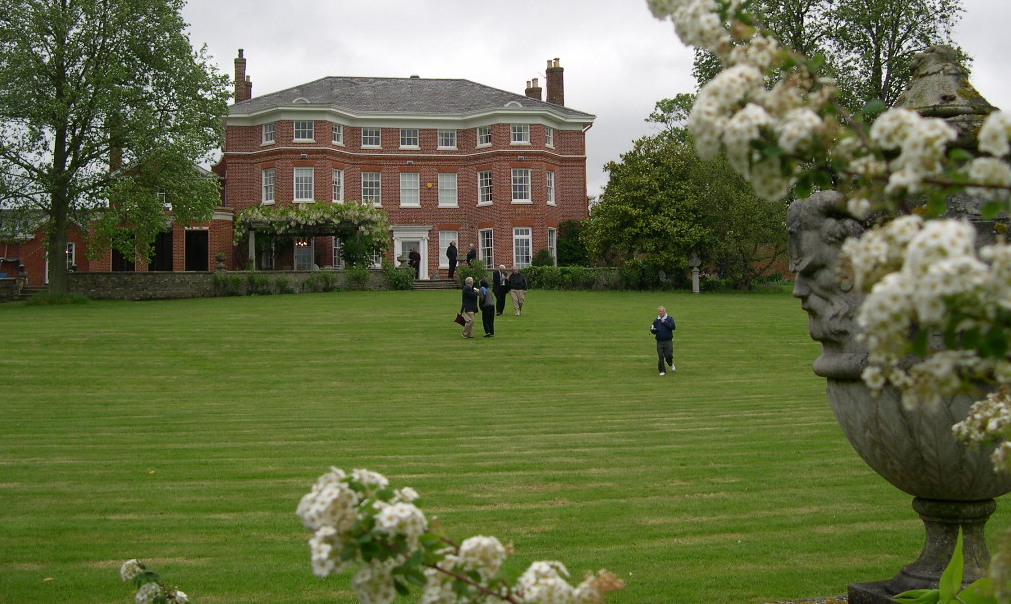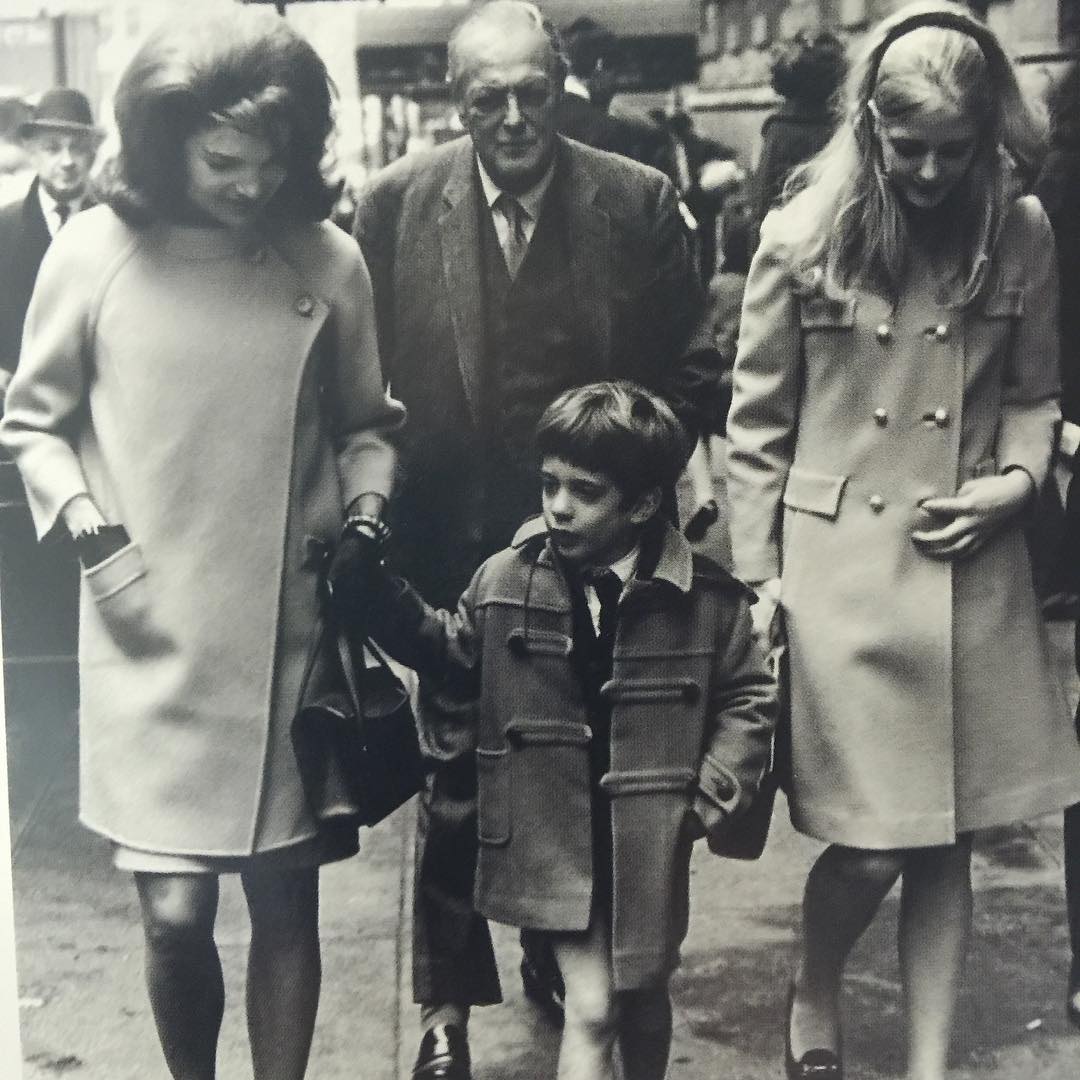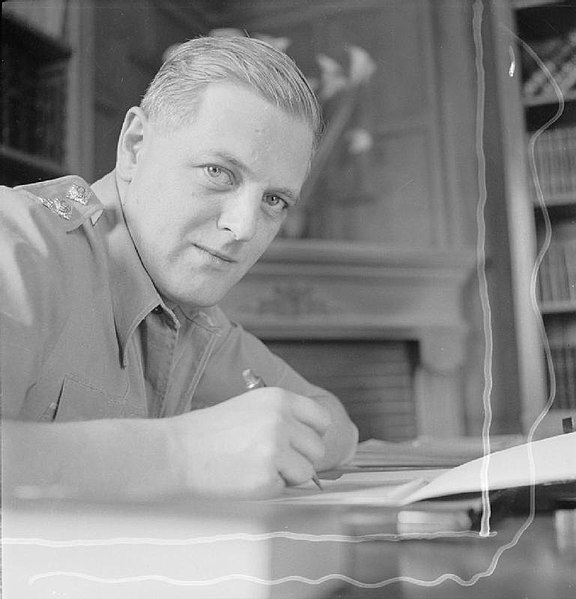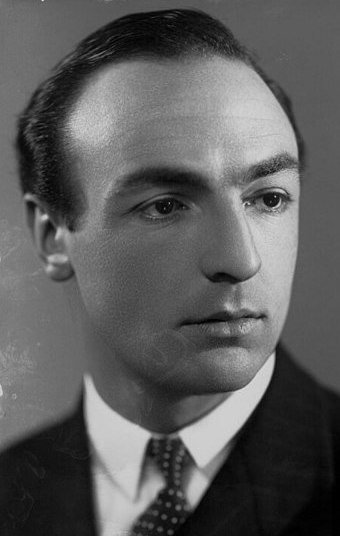
Present at the Creation: Randolph Churchill and the Official Biography (2)
“Randolph Churchill: Present at the Creation,” is taken from a lecture aboard the Regent Seven Seas Explorer on the 2019 Hillsdale College Cruise around Britain, 8 June 2019. Continued from Part 1.
Randolph Churchill Postwar

Out of the Army and Parliament in 1945, and divorced from Pamela in 1946, Randolph Churchill led a “rampaging existence,” his sister Mary wrote. “He always had lances to break, and hares to start.” He was loyal and affectionate, but he “would pick an argument with a chair.”
In 1948 he married June Osborne and fathered his second child, Arabella. The long-suffering June left him in 1961.
He combined generous devotion to those he loved with an acid tongue and pen for those he didn’t. Many of the latter, I think, richly deserved what they got. But his public persona was based on the acid.
In the mid-1950s, surgery revealed that a tumor on his lung was benign. His lifelong friend, Evelyn Waugh, burst into the bar at White’s Club: “Have you heard the news? They’ve cut out the only part of Randolph that is not malignant!” Randolph responded by sending the devout Catholic Waugh an Easter card, wishing him a “Happy Resurrection.” They remained devoted to each other.
Character and Quality

His political career fizzled in part because he was unwilling to put up with local committee humbug. Thus he never gained the longed-for safe seat, where he could fight at his father’s side. In truth the Conservatives resented him. Before the war he’d battled their official candidates, splitting the vote and costing seats. Tory resentment at Winston’s rebellions was tempered by his wartime leadership, though it never really vanished. With Randolph they had no reason to hide their dislike, and after war they never forgot. It was a great loss, because his debating skills were formidable.
Randolph despised injustice. Landing in Johannesburg in the Apartheid days, he was handed an immigration form asking him to state his race. “Damned cheek!” he exclaimed, and began writing furiously, embellishing the myth of Indian blood in Churchill veins:
Race: human. But if, as I imagine is the case, the object of this enquiry is to determine whether I have coloured blood in my veins, I am most happy to be able to inform you that I do, indeed, so have. This is derived from one of my most revered ancestors, the Indian Princess Pocahontas, of whom you may not have heard, but who was married to a Jamestown settler named John Rolfe.
Then he gaily burned his press card, while a little girl watched fascinated.
Someone said that Randolph’s main feature was “generosity rather than honesty.” I feel sure he was both. Writing the biography, Sir Martin recalled, Randolph would constantly tell his staff, “I am interested only in the truth.” Bluntness brought him constant disputes with others less truthful. But no one can say that honesty wasn’t one of his great qualities.
At Stour: The Beast of Bergholt
In 1955 Randolph purchased Stour House in East Bergholt, Suffolk, in the heart of Constable Country. On the terrace wall, Randolph affixed a plaque quoting Constable: “I am come to a determination to make no idle visits this summer, nor give up any time to commonplace people. I shall return to Bergholt.” Martin Gilbert wondered:
Were we, Randolph’s researchers, “ghosts” and “paid hacks,” among the “commonplace people” when storms raged? We certainly felt as much. In September 1964 all four researchers (Michael Wolff, Andrew Kerr, George Thayer and myself ) and the four secretaries on the payroll at the time, received a collective exhortation, one of Randolph’s (and his father’s) favourite verses:
The heights of great men reached and kept,
Were not attained by sudden flight,
But they, while their companions slept,
Were toiling upwards in the night.
History was for him a feast, full of delicious morsels. And so … it became for me. Randolph’s personality, with its exhortations and eccentricities, kept the team on its toes.
Once a telegram arrived in which the address was given not as East Bergholt but Beast Bergholt. Randolph immediately announced with a broad grin that he was now “the Beast of Bergholt.” On another occasion he said, “I am an explosion that leaves the house still standing.” Sadly, the beast was the side of him most people saw.
Randolph Exploding
He honored and copied his father but nursed uneasy grievances that surfaced when he was drunk. In the late Fifties, at dinner on the Onassis yacht in the Aegean, he suddenly turned on his aged father with a stream of invective that sent Sir Winston to his cabin, pale and shaking. Onassis got rid of Randolph the next day by arranging for him to interview the King of Greece. He left the ship smiling, but in the launch, Churchill’s private secretary Anthony Montague Browne found him weeping. “You didn’t think I was taken in by that plan, do you?” he said. “I do so very much love that man, but something always goes wrong between us.”
Alas, his son wrote, “Randolph had no idea how unpleasant and offensive he could be when he was drunk. By the time he was sober he had largely forgotten or become oblivious to what had passed.”
* * *
At Stour one evening the guest was the editor of the Daily Telegraph, Donald McLachlan. Randolph was excited because the Telegraph would be serializing the biography. But in the 1930s, McLachlan had been a sub-editor of The Times. It was “an act of faith” at Stour to denounce The Times for hiding the truth about Nazi Germany. Randolph was carving the roast when McLachlan revealed inadvertently that it was he who had cut the Times’s Berlin despatches. Alarmed, Martin Gilbert glanced at Randolph:
Suddenly he turned towards the table, brandishing the carving knife, shaking and trembling, and exploded with a bellow of fury: “Shits like you should have been shot by my father in 1940.” The stress on “shits” and “shot” was fearsome to hear. Then he lunged towards the editor, who had to dodge round the table, until Randolph hurled the carving knife on to the floor and strode out of the room. We never saw him again that night. In the morning McLachlan left the house. [He stayed the night?]
Randolph Defending

When in good form, Randolph’s son continued, “he could be the best of companions, a brilliant conversationalist, bubbling with wit and panache. A dinner hostess could be assured that whatever else might happen, the evening would not be dull if Randolph was among her guests, and in a crisis, there was no friend more loyal.”
In 1961 Harold Macmillan’s Minister of War, John Profumo, resigned amidst a sex scandal. Britain’s tabloids pounced and the Profumos were besieged by paparazzi. In strictest secrecy, Randolph offered Stour as a refuge.
Martin Gilbert showed me Randolph’s written instructions, headed OPERATION SANCTUARY and marked SECRET. Randolph would vacate the premises and the Profumos would arrive unobserved. He did not identify them, referring only to “OGs” (Our Guests).
If any reporters followed, “admission to the house or garden will be denied.” If they refused to leave the police would be called, “during which time OGs will retire upstairs. We will not stand any rot.”
Sir Martin considered Randolph’s gesture “one of real affection and goodness.” He knew that, “as a young MP, Profumo had been one of the Conservative Members who voted against Neville Chamberlain on 8 May 1940, making possible Churchill’s premiership two days later.”
Concluded in Part 3: “Randolph Churchill and the ‘Great Work'”







2 thoughts on “Present at the Creation: Randolph Churchill and the Official Biography (2)”
Good question, which I relayed to David Lough, author of No More Champagne, an excellent book on the Churchill finances. Mr. Lough replies: “Chartwell or the Literary trust (both names for the same Trust) bought Stour for him and gave him regular gifts (as it did also to the other children, to be fair). Clementine Churchill was the main mover in pushing her co-trustees to buy him a place away from Chartwell. It had been originally intended that he would inherit the Chartwell Farmhouse and some land, but she thought he would prove an impossible neighbour for the National Trust!” Of course, in those days, costs and overhead were a lot lower in Suffolk than today, when it is valuable real estate. Even so, Sir Martin Gilbert told me, Randolph was frequently chased by creditors: the butcher, the baker, etc….
Paul McShea writes: Thank you for your series on Randolph Churchill. The photograph from Part 2 showing the back of Stour is the first that I have seen. My question is: how did Randolph afford to live, in the grand style, at Stour? I know he was an accomplished journalist and writer, but nowhere near the level of demand of his father, nor I am sure in the same pay scale.
Comments are closed.